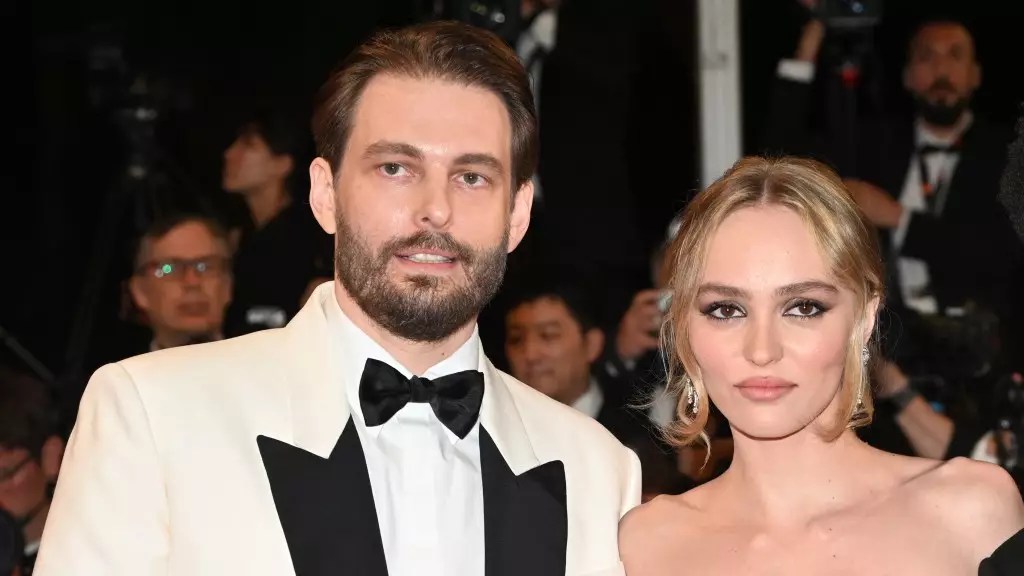In the realm of entertainment, controversies often overshadow artistic endeavors, leading to polarized opinions among audiences and critics alike. Such was the case with HBO’s “The Idol,” a show that drew significant backlash shortly after its debut. However, amid the tumult, Lily-Rose Depp emerged as a strong advocate for the series and its creator, Sam Levinson. In a recent interview, Depp expressed her unwavering support for Levinson, highlighting her deep-rooted friendship with him and offering insight into their collaborative experience.
Depp’s defense of Levinson comes at a time when discussions around the show’s perceived shortcomings dominated the narrative. She emphasized that he was acutely aware of the potential for controversy surrounding “The Idol,” as his artistic focus often gravitates towards challenging themes. While many viewers criticized the series, Depp’s perspective shines a light on the complexities of creating art in today’s hyper-judgmental environment.
Speaking on the “Happy Sad Confused” podcast, Depp didn’t shy away from sharing her profound respect for Levinson and his wife, Ashley, who produced the show. She referred to them as not only friends but as family, showcasing the personal connections nurtured during the production process. Depp remarked on how their kindness and mentorship were instrumental to her own development as an actress. This testimonial stands in stark contrast to the public sentiment that condemned Levinson, indicating a dissonance between perceived and lived experiences in the entertainment industry.
Depp articulated her frustration over the negativity directed towards Levinson. She asserted that the criticisms leveled at him, particularly regarding his capabilities as a filmmaker, severely misrepresented her collaborative experience. This dichotomy between public reception and personal experience raises important questions about the impact of social media and public discourse on artistic expression, as well as the unparalleled scrutiny placed on creators in an era defined by instant reactions.
In “The Idol,” Depp portrayed Jocelyn, a pop star grappling with the aftermath of a traumatic mental health crisis. This role, weaving through themes of fame, trauma, and identity, offered Depp both challenges and opportunities for growth. She expressed her affection for the character and the storyline, noting how the experience pushed her boundaries as an artist. Her reflections suggest that even amid harsh criticism, the opportunity for profound personal development remains invaluable.
Depp’s assertion that she learned and grew through this process serves as a poignant reminder of the challenges artists face—not only to create but to navigate public perception. She maintained that the journey was integral to her life, even suggesting that the controversies surrounding the show were somewhat intentional, aimed at pushing societal norms and sparking essential conversations.
Interestingly, Depp’s acceptance of the mixed reactions towards “The Idol” reflects a broader trend in contemporary artistic endeavors: the willingness to embrace controversy as a catalyst for dialogue. As she noted, “People are always gonna make their own opinions of things,” and it’s vital for creators to remain steadfast in their convictions. This perspective invites a more nuanced understanding of art—recognizing that discomfort can lead to growth, both personally and culturally.
The cancellation of “The Idol,” following extensive reshoots and significant shifts in production, underscores the precarious nature of artistic ventures today. Despite the show’s brief run, Depp’s time on set proved to be transformative. Her final thoughts on the experience underscored a sense of fulfillment and appreciation for the journey, rather than focusing solely on the show’s reception.
In closing, Lily-Rose Depp’s reflections on her experience with “The Idol” offer a compelling exploration of the complexities of creative partnerships and the nature of artistic expression in an era rife with criticism. Her unwavering support for Sam Levinson amidst a storm of controversy demonstrates the depth of their relationship and the significance of personal connections in an increasingly impersonal industry. Ultimately, her story serves as a reminder that behind every piece of art lies a journey of self-discovery and an opportunity for growth, irrespective of public perception.


Leave a Reply